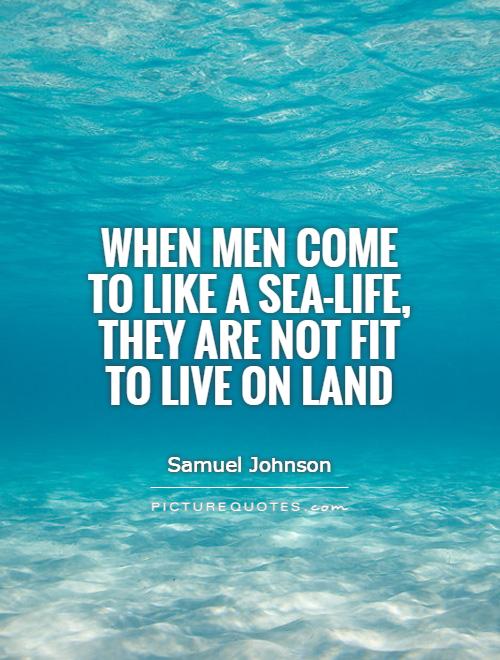
When men come to like a sea-life, they are not fit to live on land

When men come to like a sea-life, they are not fit to live on land
Samuel Johnson, the renowned English writer and critic, once famously said, “When men come to like a sea-life, they are not fit to live on land.” This statement reflects Johnson’s belief in the transformative power of the sea and the profound impact it can have on those who are drawn to it.For Johnson, the sea represented a world of adventure, freedom, and endless possibilities. It was a place where men could escape the constraints of society and experience a sense of liberation that was impossible to find on land. The sea, with its vast expanse and unpredictable nature, offered a sense of excitement and challenge that appealed to those with a restless spirit and a thirst for adventure.
In Johnson’s view, those who were drawn to the sea were fundamentally different from those who were content to live on land. They possessed a sense of daring and a willingness to embrace the unknown that set them apart from their more conventional counterparts. The sea became their home, their refuge, and their true calling, and they found it difficult to adapt to the constraints and routines of life on land.
Johnson’s statement also speaks to the idea that once a person has experienced the beauty and majesty of the sea, they can never truly be content with a life that does not include it. The sea has a way of capturing the imagination and stirring the soul in a way that is impossible to resist. Its vastness, its power, and its ever-changing nature inspire a sense of awe and wonder that is unmatched by any other experience.












 Friendship Quotes
Friendship Quotes Love Quotes
Love Quotes Life Quotes
Life Quotes Funny Quotes
Funny Quotes Motivational Quotes
Motivational Quotes Inspirational Quotes
Inspirational Quotes